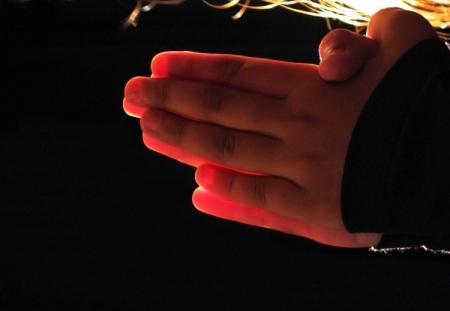Canada Supreme Court Rules Against Christian Prayers at City Council Meetings, Says It 'Stigmatizes' Atheists

Nearly a year after the United States Supreme Court ruled that government meetings could include Christian prayers, Canada's highest legal authority has concluded the opposite.
The Supreme Court of Canada ruled unanimously on Wednesday that prayers at town hall meetings are a violation of law, since they show preference for one religion over another.
In Mouvement laïque québécois v. Saguenay (City), Canada's highest court upheld a lower court decision concluding that the mayor of Saguenay had violated an atheist's freedom of conscience by opening public meetings with a prayer.
"The prayer recited by the municipal council in breach of the state's duty of neutrality resulted in a distinction, exclusion and preference based on religion …. which, in combination with the circumstances in which the prayer was recited, turned the meetings into a preferential space for people with theistic beliefs," wrote the court.
"Although non‑believers could also participate, the price for doing so was isolation, exclusion and stigmatization. This impaired [plaintiff's] right to exercise his freedom of conscience and religion."
Canadian Secular Alliance, an organization that was an official intervener in the case, called the decision a "victory" for Canada.
"The decision is a victory for pluralism, equality and neutrality, rather than a promotion of atheism," stated CSA President Greg Oliver.
"The CSA congratulates Alain Simoneau and Mouvement laïque québécois for their successful effort to make Canada a more inclusive country and calls on municipal councils still reciting government prayers to respect the decision and end this discriminatory practice."

For years, city leaders in Saguenay, Quebec, would open meetings with a brief Catholic prayer, reasoning that the prayer reflected Quebec's historic Catholic heritage.
In 2007, atheist Sagenuay resident Alain Simoneau filed a complaint against the practice in the Quebec Human Rights Tribunal, which ordered Sagenuay Mayor Jean Tremblay to cease the prayers.
Mayor Tremblay appealed the decision to the Quebec Court of Appeal, which in 2011 ruled in favor of the city over the atheist.
The case was then appealed to the nation's highest court, which heard arguments last October and involved input from various religious and civil libertarian groups.
A nationally binding decision, Matt Kwong of CBC News noted that other local governments with prayer practices are being effected.
"City of Halifax legal staff began reviewing its morning 'invocation,' which begins with the words 'God our creator' and ends with 'amen,'" reported Kwong.
"Ottawa's city council also dropped its morning prayer on Wednesday, as did the community of Dieppe, N.B. Both municipalities stated they would review the practice — something constitutional law expert Errol Mendes suspects many town and city councils will be doing in the days to come."
The Canadian Supreme Court's decision comes nearly a year after the U.S. Supreme Court ruled in Town of Greece v. Galloway that local governments could hold sectarian prayers at public meetings.
In a 5-4 decision, the United States' highest court concluded that a New York town could begin their monthly town hall meetings with Christian prayers.
"The court must decide whether the town of Greece, New York, imposes an impermissible establishment of religion by opening its monthly board meetings with a prayer. It must be concluded … that no violation of the Constitution has been shown," read the majority opinion, authored by Justice Anthony Kennedy.
Bruce Clemenger, president of The Evangelical Fellowship of Canada, whose organization served as an intervener, released a statement arguing that the decision was more nuanced than perceived.
"The Supreme Court did not ban offering prayers at government events, but they did offer guidance about when a prayer may cross a line," said Clemenger.
"It was the circumstances and context of the prayer that the court found violated the neutrality of the state and contravened the religious freedom of an atheist who challenged the prayer."
Kwong of CBC reported that the decision "did not deal with religious icons in provincial legislatures or the prayers that open parliamentary sessions in Ottawa."
"And there are some legal observers who feel that some forms of public prayer and reflection would be fine as long as they are not overtly exclusive," added Kwong.






















